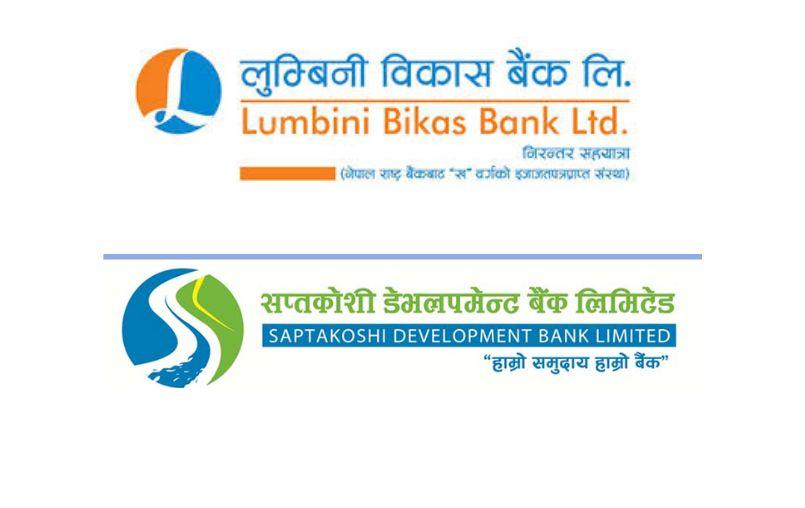NRB Takes Action Against Saptakoshi and Lumbini Development Banks
Author
NEPSE TRADING

Nepal Rastra Bank (NRB) has taken regulatory action against two development banks — Saptakoshi Development Bank Limited and Lumbini Bikas Bank Limited — during the first quarter of the current fiscal year.
Immediate Corrective Action Against Saptakoshi Development Bank
NRB has imposed immediate corrective action on Saptakoshi Development Bank for failing to maintain the minimum capital adequacy ratio (CAR) as required by the central bank.
According to an on-site inspection report, the bank’s CAR was found to be 24.9% below the regulatory minimum.
As per the financial statement of Ashad-end 2082, the bank’s capital adequacy ratio stands at 7.51%, significantly lower than the 10% minimum threshold set by NRB. Similarly, in Ashad-end 2081, the bank’s capital adequacy ratio had been 42.7% below the required minimum after necessary loan-loss adjustments were made.
NRB regulations require banks and financial institutions that fail to maintain the minimum capital adequacy ratio to undergo prompt corrective action, and Saptakoshi Bank has now been subjected to such measures.
The central bank also found that Saptakoshi had extended the maturity of capital-based loans without proper documentation, maintained inaccurate loan-loss provisioning details, submitted unreliable reports to NRB, and failed to comply with prior directives.
As a result, NRB has warned the bank’s CEO, Mr. Dinesh Kumar Pokharel, and instructed the board of directors to ensure that these irregularities are rectified and not repeated. The central bank has also issued a written directive to the board to take full responsibility for implementing the required improvements.
Warning to Lumbini Bikas Bank’s Board of Directors
In the same quarter, NRB has also warned the board of directors of Lumbini Bikas Bank. During an on-site inspection, it was found that the board had increased the CEO’s remuneration and benefits shortly after his reappointment for a second term, in violation of regulatory provisions.
Consequently, NRB has cautioned the then board of directors for breaching established norms.



